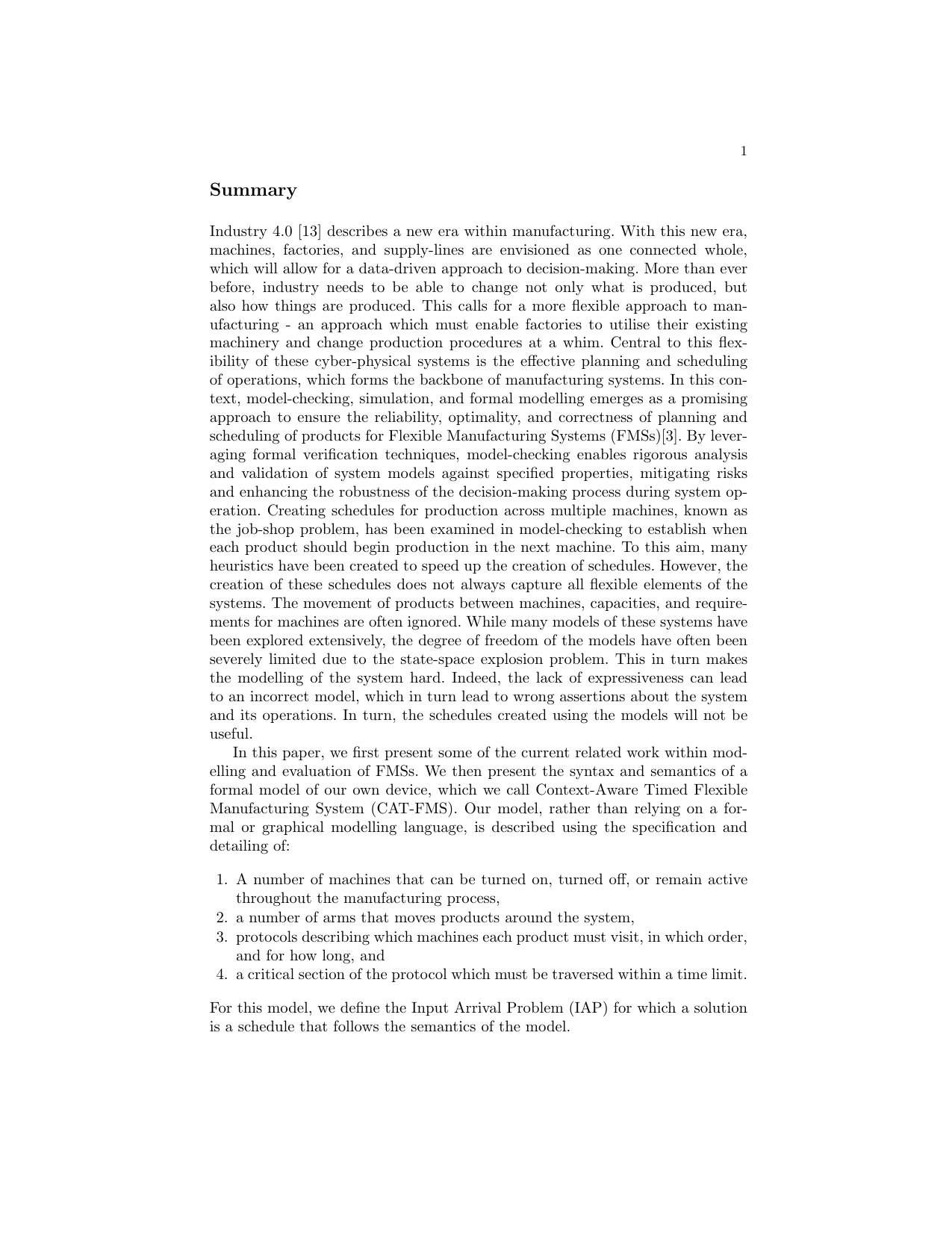
Scheduling for Timed Context-Aware Flexible Manufacturing Systems
Authors
Term
4. term
Education
Publication year
2024
Submitted on
2024-06-05
Pages
38
Abstract
With the rise of industry 4.0, flexible manufacturing systems are expected to become the dominant approach to product manufacturing. The intelligent and correct operations of these systems are crucial to ensure that production occurs in a safe and time-wise feasible manner. Model-based approaches to intelligent manufacturing promises to ensure correctness of the manufacturing of products. In this paper, we demonstrate how one can model Context-Aware Timed Flexible Manufacturing Systems. These systems define protocols for all products that can be manufactured, a deadline for the traversal of a subset of this protocol, machines that are active, or state-full, arms which can reach subsets of the machines. We use this model to define the synthesis of schedules for products for the system. We define semantics for Context-Aware Timed Flexible Manufacturing Systems, and use it to implement a verifier and schedule synthesiser. We use the semantics and the implemented verifier to show that an existing schedule synthesiser does not always create correct schedules. We then present a schedule synthesis algorithm tailored to Context-Aware Timed Flexible Manufacturing Systems and show four heuristic functions for the algorithm. The synthesiser, verifier and the different heuristic functions are implemented. The heuristic functions are then compared to each other and an unguided depth-first search, and one of the heuristics is selected for further examination. We then compare a guided depth-first algorithm using this heuristic to the unguided depth-first algorithm. We find that substituting schedule optimality for synthesis speed using the guided depth-first can produce a schedule that is more optimal than those found by an unguided depth-first search. The results are discussed and evaluated based on the quality of the synthesised schedule and the time to synthesise a solution.
Documents
